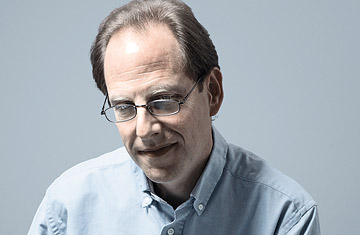
Simon Baron-Cohen of the University of Cambridge is taking a broader view of mating habits and their consequences
(3 of 3)
In June, however, Baron-Cohen's theory breathed new life when he published in the Journal of Autism and Developmental Disorders the results of a major survey of more than 62,000 schoolchildren in three regions of the Netherlands, one of which, Eindhoven, is known as the Dutch Silicon Valley. The researchers found that two to four times as many children in Eindhoven had been diagnosed with autism as children in Haarlem and Utrecht, areas of equivalent size and similar socioeconomic profiles that don't have the same concentration of IT workers and engineers.
Baron-Cohen cautions that the Dutch study requires follow-up to rule out factors like the possibility of more diagnostic centers in Eindhoven. He also warns strongly against running too far too fast with the assortative-mating hypothesis or drawing simple conclusions from it about who should or shouldn't marry whom. Nothing bothers him more than the thought that people might change their behavior — as they did in deciding against vaccinating their children after the now discredited physician Andrew Wakefield imputed toxic qualities to the MMR vaccine. "It's very easy to become alarmist and cause panic," he says. "It can be dangerous."
And he finds profoundly offensive the idea that some people shouldn't get together — or that some children shouldn't be born — because of the potential for autism. This feeling runs deep and has highly personal roots. His sister Suzie, Baron-Cohen explained in an uncharacteristically self-revealing online article he wrote for the magazine Community Care in 2009, was born with brain damage and significant physical and intellectual limitations. "My relationship with her is among the richest I enjoy," he wrote. "I am glad that she is alive and that she was not screened out of existence before birth and that my parents did not opt to terminate her life." If there's one thing Baron-Cohen embraces, it's difference — not just on the autism spectrum but on the human spectrum.
Warner is the author of We've Got Issues: Children and Parents in the Age of Medication
